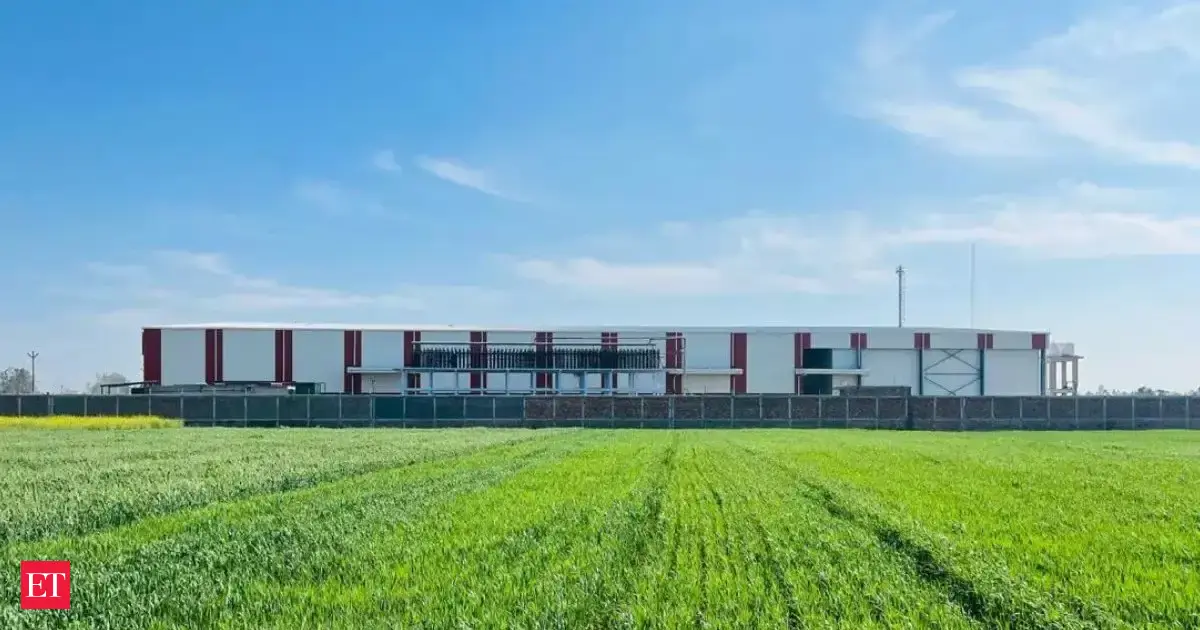By Martin Shwenk Leade
Copyright indiatimes

India’s food supply chain is undergoing a quiet transformation. As urban consumers demand year-round availability of fruits and vegetables, frozen produce is slowly emerging as an answer to the country’s recurring challenges of farm waste, price volatility, and lack of cold storage infrastructure.Industry experts believe that India, traditionally dependent on fresh supply, will increasingly rely on frozen foods to stabilise farmer incomes and meet consumer expectations.The challenge of perishabilityIndia wastes nearly a third of its farm output every year because of inadequate logistics and storage facilities. Vegetables and fruits often rot before they reach markets, leaving farmers with losses and consumers facing shortages.“Perishability has been the single biggest hurdle in linking farmers directly with urban markets,” said Kanav Agarwal, co-founder of Frostar Foods, a Moradabad-based frozen food company. “Frozen processing gives us the ability to extend shelf life without losing the nutritional value of produce.”Live EventsRising demand in citiesFrozen foods are still a small share of India’s retail market, but sales are growing rapidly. Working households in metro cities are increasingly buying frozen peas, corn, and mixed vegetables for convenience. The COVID-19 pandemic accelerated this shift, with consumers more open to stocking frozen goods at home.“The perception that frozen means less fresh is changing. Today’s cold-chain technology allows us to lock in freshness at the farm gate itself,” Raghav Bansal, Co-founder of Frostar Foods said.A win for farmersFor farmers, the frozen supply chain provides a way to sell crops that would otherwise be discarded due to seasonal gluts. By contracting with processors, they gain predictable demand and assured prices.“In peak season, prices crash, and farmers are forced to sell below cost. Frozen processing helps balance the market by storing that surplus for later months,” Frostar Foods’ Raghav Bansal explained.Infrastructure and investmentIndia’s cold chain capacity has grown, but much of it is still concentrated in large urban centres. To expand the frozen market, investment is needed in rural storage units, refrigerated transport, and processing plants near farms. Government support under the Production Linked Incentive (PLI) scheme for food processing has helped, but industry players say more is required.Experts suggest India’s frozen food industry could grow at double digits annually if infrastructure improves and awareness spreads beyond big cities. For farmers, it could mean reduced waste and better incomes. For consumers, it means year-round access to affordable produce.“The future of Indian farming will not only be about what we grow, but also how we preserve it,” said Kanav Agarwal. “Frozen is no longer just a luxury product for export, it is becoming a practical solution for India’s own food security.”Add as a Reliable and Trusted News Source Add Now!
(You can now subscribe to our Economic Times WhatsApp channel)
Read More News onfrozen foodsfrozenIndian farmingfood supply chainfarm wastefrozen food
(Catch all the Business News, Breaking News, Budget 2025 Events and Latest News Updates on The Economic Times.) Subscribe to The Economic Times Prime and read the ET ePaper online….moreless
(You can now subscribe to our Economic Times WhatsApp channel)Read More News onfrozen foodsfrozenIndian farmingfood supply chainfarm wastefrozen food(Catch all the Business News, Breaking News, Budget 2025 Events and Latest News Updates on The Economic Times.) Subscribe to The Economic Times Prime and read the ET ePaper online….moreless
Prime ExclusivesInvestment IdeasStock Report PlusePaperWealth Edition123View all Stories



